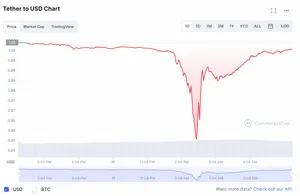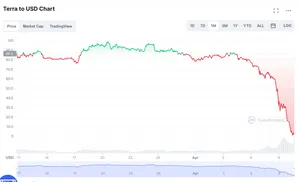On May 13, the company announced it would be reversing transactions made during an hour-long period on May 12 when "users who traded LUNA were quoted an incorrect price". Some users were able to profit off the discrepancy, but later were told that their transactions were being reversed. Crypto.com offered $10 in CRO, their cryptocurrency token, "for the inconvenience caused". Crypto.com halted Luna trading after discovering the issue, and it remains halted as of May 13.
The issue sounds quite similar to issues that affected various defi projects around the same time. Several projects who failed to account for unexpected Luna price data coming from blockchain oracles including Chainlink suffered major attacks.










